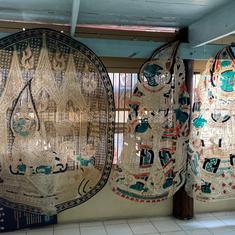Jammu and Kashmir: Second closed-door meeting of UN Security Council to be held tonight, say reports
China, a close ally of Pakistan, reportedly called for this meeting.

The United Nations Security Council is likely to conduct a closed-door meeting on Jammu and Kashmir on Wednesday night in New York, NDTV reported, citing sources. China, a close ally of Pakistan, allegedly pushed for this meeting, according to several reports.
This is the second such meeting on the prevailing situation in the Union Territory after the Indian administration amended Article 370 of the Constitution to revoke the state’s special status in August last year.
The first closed-door meeting was conducted on August 16, 2019, after which India had reiterated that its decisions pertaining to the region were an internal matter. It was the first time in over 50 years that the UN Security Council had held a meeting exclusively to discuss the Kashmir matter.
Pakistan had then claimed that it was not the “last step” taken by the country over the situation in Jammu and Kashmir. After the meeting, China had said that members of the United Nations Security Council had voiced deep concerns about the situation in the region, and hoped that the “relevant parties will exercise restraint and refrain from taking unilateral actions”. It also called upon the two countries to resolve the matter through dialogue.
On Wednesday, diplomatic sources from France said that a UNSC member had proposed to deliberate on the Kashmir matter once again. “France’s position has not changed and is very clear: the Kashmir issue must be settled bilaterally – as we have stated on several occasions and will continue to reiterate to our partners on the United Nations Security Council,” Hindustan Times quoted a French diplomatic source as saying.
French President Emmanuel Macron discussed the situation in Jammu and Kashmir with Prime Minister Narendra Modi during a telephone conversation last week. Macron reportedly told Modi that Paris was closely following the developments in the region.
Last month, a Security Council meeting on Jammu and Kashmir was reportedly not held.
India and Pakistan will not be present at the meeting as they are open to only permanent members of the Security Council. There is likely to be no statement after the meeting, owing to their informal nature.
The Narendra Modi government has faced global pressure to restore normalcy in the Valley. On October 25 last year, the United States asked India to provide a road map for the restoration of normalcy in the region, including the immediate release of all political detainees.
In lockdown since August 5
On August 5, 2019, the central government amended Article 370 of Constitution and imposed prohibitory orders in the region. It also divided the state into the two Union Territories – Jammu and Kashmir, and Ladakh. Postpaid mobile and SMS services have resumed in Kashmir. Broadband services were restored in institutions dealing with “essential services”, such as hospitals, banks, government offices, hotels, and tour and travel establishments on Tuesday night. The Ladakh administration on December 27 restored 4G mobile internet connectivity in Kargil, after a gap of 145 days.
A number of political leaders were also detained. Farooq Abdullah’s detention under the Public Safety Act was extended by three months on December 15. At the moment, he is confined to his Gupkar Road residence in Srinagar. Omar Abdullah is at Hari Niwas, while Mehbooba Mufti was initially lodged at Cheshmashahi hut, but was later shifted to a government accommodation.
Last week, the Supreme Court ordered the Jammu and Kashmir administration to immediately review all restrictive orders imposed in the Union Territory. The bench of Justices NV Ramana, R Subhash Reddy and BR Gavai said suspending internet indefinitely was a violation of telecom rules.









